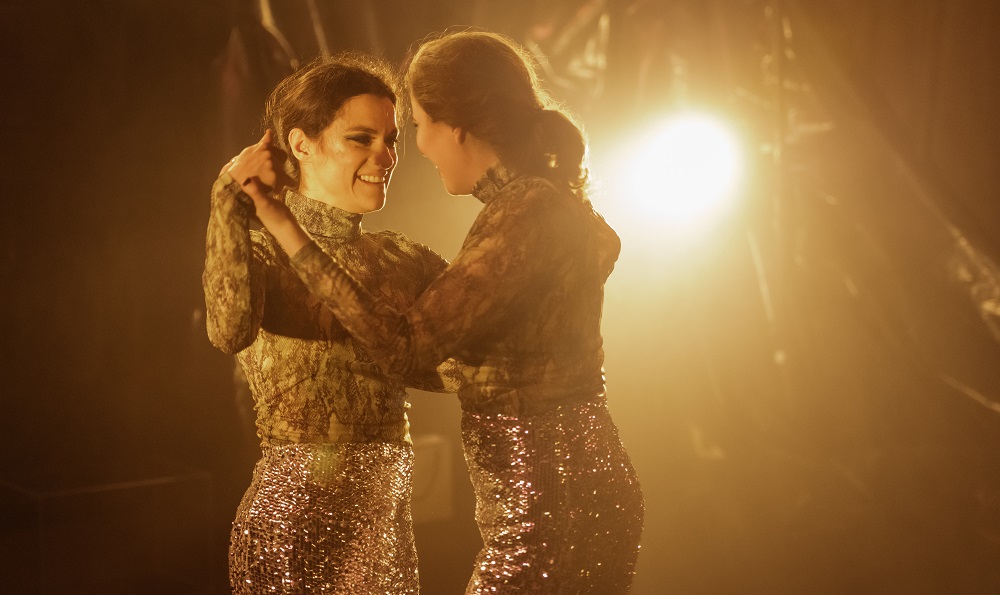
Interview: Lisa Langseth
Interview: Lisa Langseth
From pain to creativity: Lisa Langseth on her new play at Omnibus Theatre in Clapham, writing, directing and finding your voice.
Can you tell us a little bit about your background and how you became a writer?
As a child I was constantly writing stories, I took everything I thought and felt and made stories out of it. I started writing and directing theatre in the early 2000s. For the past fifteen years, I have mostly written and directed film and television. I’ve been developing The Woman Who Turned Into A Tree on and off over the past ten years and it’s wonderful that it has now come to life in the hands of director Emily Louizou.
The Woman Who Turned Into A Tree explores themes of transformation and identity. What drew you to these themes, and how did you approach them in the play?
I don’t see identity as a constant state but something that is constantly in motion, depending on where your soul is and how the outside world sees you. Daphne in the play finds herself in a place that is not at all consistent with who she really is. The play is about the conflict between Daphne’s inner world and the outside world. Daphne’s difficulties are rooted in her playing a role in the world that doesn’t match who she really is. Her interior, therefore, becomes a threat to her entire existence, as she knows it. She tries in every way to silence her inner self, but her soul continues to demand space in the real world. This conflict leads Daphne into a painful identity crisis for which she has no words.
The play deals with the experience of being a woman in a patriarchal society. How do you think the play’s themes and messages relate to contemporary conversations around gender and power?
For me, The Woman Who Turned Into A Tree is about class and mental illness. Daphne comes from a class with few opportunities for movement, economically and culturally. Her father is also mentally ill, which causes her to carry a fear of the unknown. At the same time, she has a strong inner spiritual longing for which she has no words. This poses enormous challenges for someone who has neither the language nor the context for the development that the soul requires. In our modern times, we still do not have a language for what the soul requires. There are many people who do not feel well in society as it is today, but the solutions still seem to move within the framework of society as it is. Daphne must go her own way, where she is also very lonely.
How important is it for you to showcase Nordic stories and perspectives to international audiences?
I don’t see myself primarily as a Scandinavian writer, but I really believe in the global conversation about how we should live our lives. Today, our world is connected in a way that it has never been before, which requires us to communicate across national borders. I also believe that people are much more alike than we think.
You have previously worked on films as well as plays. How does your approach to storytelling differ between the two mediums?
At the theatre you always relate to the stage, in film, you can place your story anywhere. For me, theatre can never be realistic, it is always heightened, because of its context. I see theatre and film as two completely different art forms. I really enjoy moving between theatre and film, it keeps me awake and reminds me that I am free. I also switch between writing and directing, which are also two different roles. As a director, you are a supervisor, as a writer you are freer in your solitude. Commuting between different professional roles is a way not to get stuck in my identity but to preserve my curiosity about the work.
What advice would you give to aspiring writers who are just starting out in their careers?
As a young writer you are often searching for your own personal voice and the best way to find that voice is to go to your personal pain and put it on the table. There is a cliché that is actually completely true: “Write where it hurts.” It is in the personal pain that you carry the most original stories, the personal pain is your gold as a writer. But it doesn’t have to mean that your story ends up being dark, if you dare to dive into your pain, you often find several layers of different types of emotions. The best comedies also come from a clear pain point. Then you can take that pain and place it in a squirrel in the jungle or in an old man on his deathbed, it doesn’t matter, starting from your pain doesn’t mean you have to write autobiographically.
What are some of your upcoming projects that we can look forward to seeing in the future?
Since I finished the second season of my TV series Love & Anarchy on Netflix, I have been working on my new feature film called The Dance Club, which I both write and direct.






